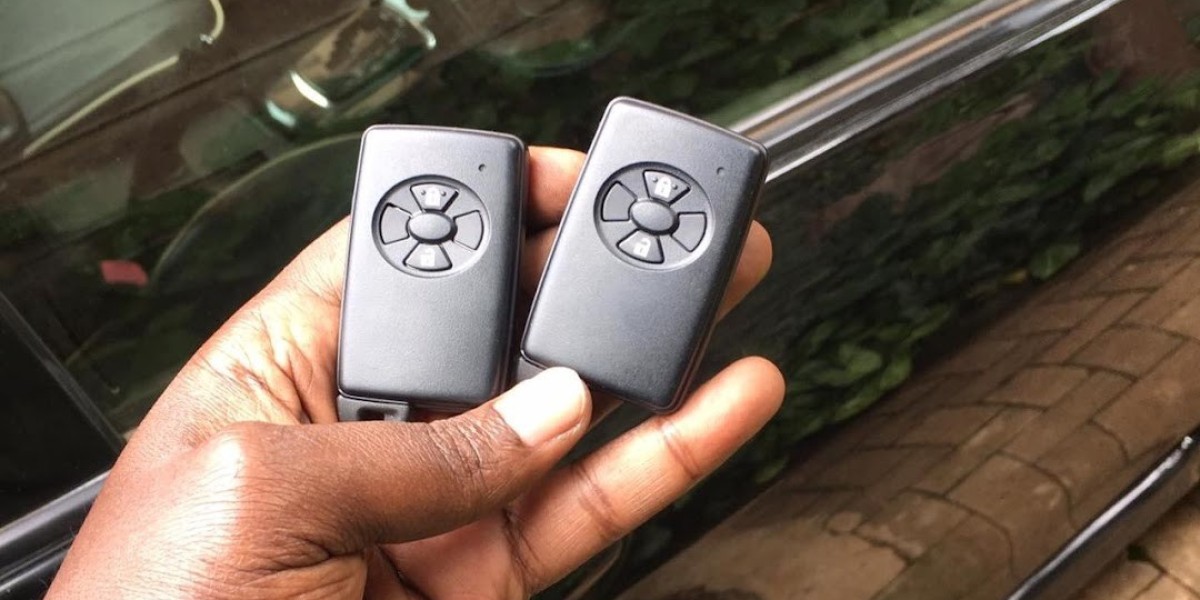In a world where automobiles are an integral part of our daily lives, the humble car key holds more significance than we often realize. As our vehicles have become more sophisticated, so too have the keys that unlock them. The process of duplicating car keys, once a simple task, has evolved into a high-tech operation that reflects the broader technological advancements of our time. This article explores the fascinating journey of car key duplication, from its early days to its future in a high-tech world, and the implications of these changes on security, convenience, and the automotive industry.
1. The History of Car Key Duplication
Duplicate car keys began as a straightforward process, with locksmiths manually cutting keys to match the unique grooves of the original. These early methods were purely mechanical, relying on the skill and precision of the locksmith. As car designs and security systems advanced, so did the complexity of car keys.
The introduction of electronic key fobs and transponder keys in the late 20th century marked a significant shift in car key technology. These new keys were equipped with electronic chips that communicated with the car’s ignition system, adding an additional layer of security. However, this advancement also introduced new challenges in the duplication process, as duplicating a key now required not only physical replication but also electronic programming.
2. The Impact of Digital Technology on Car Key Duplication
With the advent of smart keys, the landscape of car key duplication underwent another transformation. Smart keys, often keyless entry systems, allow drivers to unlock and start their vehicles without physically inserting a key. These keys use radio frequency identification (RFID) technology and rolling codes to communicate with the vehicle, ensuring a high level of security.
Transponder chips, embedded within the key, became standard in modern car keys. These chips communicate with the car’s onboard computer, and duplication now involved copying both the physical key and programming the chip to match the car’s security code. This technological complexity made it increasingly difficult for unauthorized duplication, as specialized equipment and knowledge were required.
3. Modern Techniques in Car Key Duplication
Today, car key duplication is a sophisticated process involving high-tech machinery and software. Computerized key cutting machines have replaced traditional manual methods, allowing for precise duplication of even the most complex keys. These machines are capable of cutting keys based on digital codes and can program transponder chips to work with specific vehicles.
Digital encryption plays a crucial role in modern key duplication, ensuring that the data exchanged between the key and the vehicle remains secure. This encryption prevents unauthorized duplication and enhances the overall security of the vehicle.
Remote duplication services have also emerged, allowing car owners to duplicate their keys through secure online platforms. These services use advanced encryption and authentication methods to ensure that the duplication process is secure and reliable, providing convenience without compromising safety.
4. The Role of AI and Machine Learning in Car Key Duplication
Artificial Intelligence (AI) and machine learning are increasingly being integrated into car key duplication processes. AI-powered systems can analyze and replicate complex key codes with high accuracy, reducing the risk of errors during duplication. These technologies also enhance security by identifying and blocking fraudulent duplication attempts, ensuring that only authorized keys are duplicated.
Machine learning algorithms continuously improve by learning from past duplication processes, making the duplication process more efficient and secure over time. This integration of AI not only streamlines the duplication process but also helps in predicting potential security threats and adapting to new key technologies as they emerge.
5. The Future of Car Key Duplication
As technology continues to advance, the future of car key duplication looks promising and innovative. Biometric keys, which use fingerprint or facial recognition technology, are on the horizon. These keys offer a highly personalized and secure method of vehicle access, with duplication involving the replication of biometric data.
Blockchain technology could revolutionize car key duplication by providing a secure, transparent, and tamper-proof record of key duplication processes. This technology would ensure that only authorized duplication requests are fulfilled, adding an extra layer of security to the process.
3D printing is another exciting development in car key duplication. This technology allows for the precise creation of physical keys based on digital models, reducing the need for traditional key cutting machines. As 3D printing technology becomes more accessible, it could become a common method for duplicating car keys.
The emergence of digital keys, stored on smartphones or wearable devices, represents a shift away from physical keys altogether. These digital keys use encrypted communication with the vehicle, offering convenience and enhanced security. The duplication of digital keys would involve secure transfer of encrypted data, potentially making traditional key duplication methods obsolete.
6. The Importance of Professional Car Key Duplication Services
While DIY key duplication kits and services are available, the risks associated with unauthorized or inaccurate duplication are significant. Attempting to duplicate a key without professional help can lead to malfunctioning keys or compromised vehicle security.
Professional car key duplication services offer the expertise, equipment, and security necessary to ensure that the duplication process is accurate and reliable. These services stay updated with the latest technological advancements, ensuring that they can duplicate even the most advanced keys. When choosing a service, it’s important to select one that has a proven track record and uses the latest technology to provide secure and high-quality duplication.
Case studies of professional services show how they have successfully adapted to modern key duplication challenges, providing customers with keys that work seamlessly with their vehicles while ensuring that the duplication process is secure and reliable.
7. Ethical and Security Considerations in Car Key Duplication
As car key duplication becomes more advanced, ethical and security considerations become increasingly important. The ability to duplicate keys easily raises concerns about privacy and the potential for unauthorized access to vehicles.
Regulations and industry standards play a crucial role in ensuring that key duplication practices are ethical and secure. Manufacturers and locksmiths must work together to prevent unauthorized duplication and protect the privacy of vehicle owners.
Preventing unauthorized duplication involves implementing security measures such as digital encryption, secure communication protocols, and authentication processes. These measures ensure that only authorized duplication requests are fulfilled, protecting vehicle owners from potential security threats.
Conclusion
The evolution of car key duplication is a testament to the rapid pace of technological advancement in the automotive industry. From simple mechanical keys to sophisticated smart keys and digital keys, the process of duplicating car keys has become increasingly complex and secure.
As we look to the future, the integration of AI, blockchain, 3D printing, and digital keys promises to further revolutionize car key duplication, offering enhanced security and convenience. However, the importance of professional car key duplication services cannot be overstated. As technology advances, so too do the risks, making it essential to rely on trusted professionals who are equipped to handle the complexities of modern key duplication.








